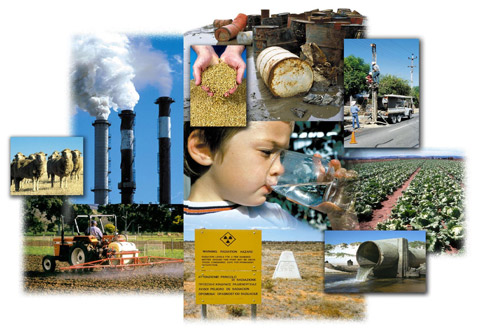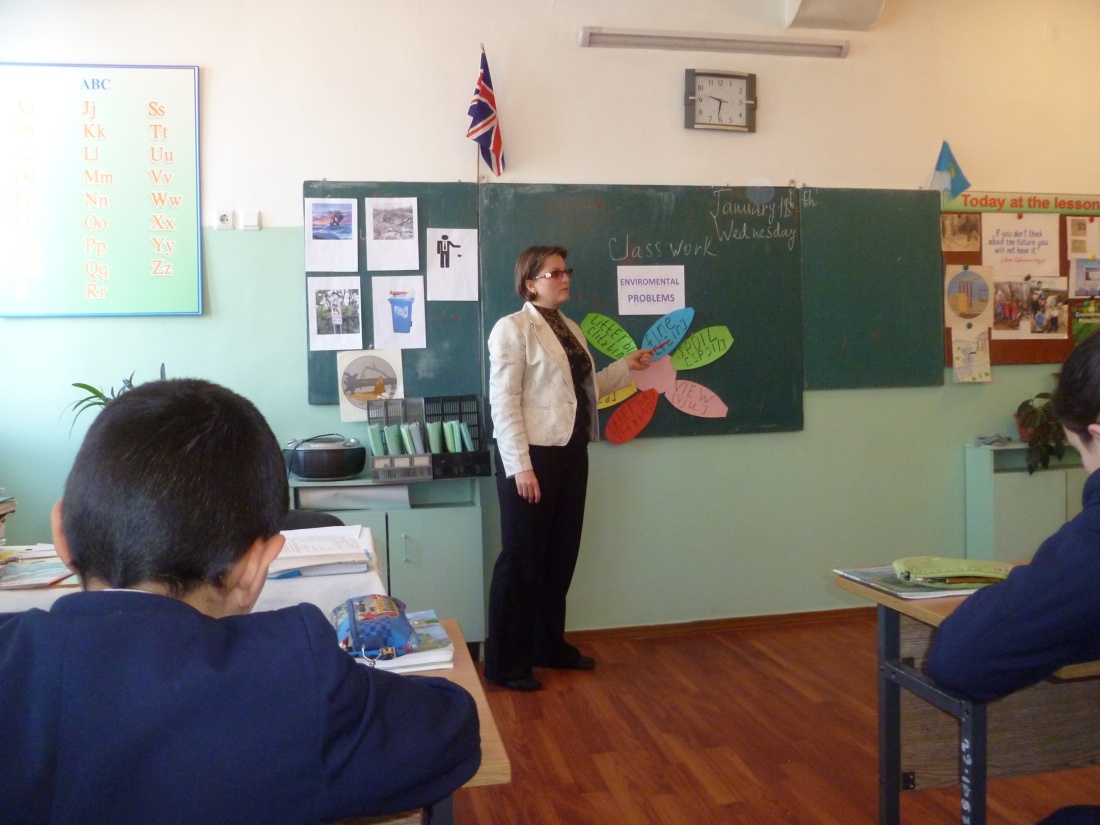- Учителю
- Открытй урок по английскому языку Enviromental problems
Открытй урок по английскому языку Enviromental problems
Открытый урок по английскому языку в 6 «А» кл.
на тему:
«Environmental problems».

Разработала и провела
</ учитель английского языка сш.№ 189
Немцова О.П.

Theme : Enviromental problems.
The aims of the lesson: -to give information about ecological problems in Kazakhstan;
- to give new lexic by this theme;
- to teach children to learn how to become environment educated
people;
-to develop reading, speaking, listening activities, memory and
mental activities,
- to bring up love to the nature, to protect the nature.
Equipment: textbooks, vocabularies, cards, pictures, posters, balloons.
Type of the lesson: multifunction lesson
The procedure of the lesson
I Organization moment:
Good morning boys and girls! I am glad to see you. Sit down please. How are you? Dialogue with the pupil on duty. Talking about the weather.
Today we have a lot of guests. They are teachers of our school.
Are you ready for the lesson? So we let's begin our lesson.
II Checking up the home task.
I ask pupils : What home task for today?
Pupils answer: Ex. 10 p.90 we must give good advice for each problems.
Pupils read their advices.
III Explanation of the new material.
Pupils, today we are going to speak about environmental problems.(stick placard with name of theme on the blackboard). This problem is widely discussed in the newspapers, radio and TV programs. And we'll work with the new words of the lesson.
Ex.1
At now I give you lists with environmentalist' s advice. You read and translate it.
-
Don't throw away old newspapers. Give them to a recycling company to make new paper.
-
Don't throw empty bottles. Take them to a bottle bank.
-
Take a shower instead of bath. Baths use too much water.
-
We use too much energy in the home. Learn to save energy.
-
Don't use an aerosol sprays, you can damage the atmosphere.
And then we' ll introduce with new words. I'll read, you'll listen to me.(I'll show pictures with new words).
I'll show flower with new words, pupils write in their vocabularies.
Pupils go the blackboard and take one paper with words and pronounce it.
Reading the text by pupils loudly
Litter is a problem.
Litter is a food, paper and cans on the ground. People don't always put their litter in the litter bin. Litter makes the place look dirty and spoils the view of the city.
Litter is a health problem. It brings illness. Some people want to control litter. They never throw litter themselves. In most cities the law punish people who throw litter on the streets. They usually pay a fine. Don't be a litterbug.
IV Physical min.
Stand up ! Hands up! Hands down!
Two little hands go clap, clap, clap
Two little feet go tap, tap, tap.
Sit down.
V Practice
I ask pupils: Do you remember meaning of these words. At now we are checking up.
Ex.4p. 92 match the words with their meanings. Children are divided into two groups and get the following task: Match the words with their meanings.
And then teacher is divided into two groups and give so tasks
At first group draw poster (environmental problems- air pollution, water pollution, land pollution, litter.) Pupils explain their poster and answer the questions.
And second group write miss letters in words.
l-tt-r, e-olog-, vi- -, envi-onm-nt, fin-, sp-il, lit-er b-n, litt-rb-g.
Ex.5 p.92
Children discuss the following questions.
1 Is litter a problem in your street?
2 Do most people in your street put their litter in the litter bin?
3 Does the law punish people who throw litter in the street?
4 Do those people pay a fine?
5 How can you help your street?
Anagram
Pupils to form words from letters.
Trseet (street), eonivrnment(environment), letrti (litter), vwie(view), ifne(fine),siolp(spoil),wla(law),pobrlrem(problem), lertti bni(litter bin), lettri bgu(litter bug), towhr(throw).
VI Giving homework.
I level write a short paragraph giving advice to a friend who wants to know what he/she can do to help the environment.
II level Ex.6 p.93 answer the questions.
Pupils write in their diaries
VII Marks
VIII The end of the lesson
Today we have talked about pollution nowadays: land pollution, water pollution, air pollution. We should learn how to become environment educated people. We shouldn't cut down trees around our houses; we should take care of living things.
And then I give beautiful balloons my pupils and say: These balloons are beautiful. I want you to save our country and planet so beautiful how these balloons.
Children our lesson is over. I am very pleased: you were very active at the lesson.